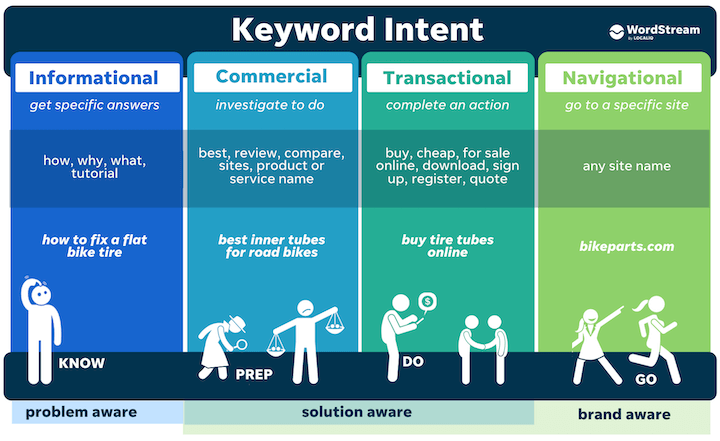In the world of digital marketing, keyword targeting plays a crucial role in driving traffic to your website and boosting your online presence. However, simply focusing on keywords without considering search intent can limit the effectiveness of your SEO strategy. To truly maximize the impact of your keyword targeting efforts, it’s essential to align your keywords with the search intent of your target audience. In this article, we’ll explore how you can leverage search intent to enhance your keyword targeting and improve your overall SEO performance.
Understanding Search Intent
Search intent refers to the reason behind a user’s search query. It can be classified into four main categories:
Informational: Users are seeking information on a specific topic.
Navigational: Users are looking for a specific website or webpage.
Transactional: Users intend to make a purchase or engage in a specific action.
Commercial Investigation: Users are researching products or services before making a purchase decision.
By understanding the search intent behind specific keywords, you can tailor your content to meet the needs of your target audience and improve your chances of ranking higher in search engine results pages (SERPs).
Aligning Keywords with Search Intent
When selecting keywords for your website content, consider the search intent behind those keywords. For example, if you’re targeting informational intent, focus on keywords that address common questions or provide detailed information on a specific topic. On the other hand, if you’re targeting transactional intent, use keywords that include phrases like “buy now” or “order online.”
By aligning your keywords with search intent, you can attract the right audience to your website and improve your chances of converting visitors into customers.
Optimizing Content for Search Intent
Once you’ve identified the search intent behind your target keywords, it’s essential to optimize your content accordingly. Create high-quality, relevant content that addresses the specific needs and interests of your target audience. Include your target keywords in strategic locations, such as the title, headings, meta description, and body of the text.
Additionally, consider the format of your content. For informational intent, articles, blog posts, and how-to guides work well. For transactional intent, product pages with clear calls-to-action are effective. By tailoring your content to match search intent, you can increase engagement, drive conversions, and improve your SEO performance.
Utilizing Tools for Search Intent Analysis
There are several tools available that can help you analyze search intent and refine your keyword targeting strategy. Google’s Keyword Planner, SEMrush, Ahrefs, and Moz are popular tools that provide valuable insights into keyword search volume, competition, and search intent.
Using these tools, you can uncover new keyword opportunities, identify trends in user search behavior, and track the performance of your keywords over time. By leveraging these tools, you can stay ahead of the competition and continuously optimize your keyword targeting strategy for better results.
Conclusion
Search intent is a critical factor in determining the success of your keyword targeting efforts. By understanding the search intent behind specific keywords, aligning your content with that intent, and utilizing tools for analysis, you can enhance your keyword targeting strategy and improve your overall SEO performance. Take the time to research and evaluate search intent for your target keywords, and incorporate these insights into your content creation process. By doing so, you can drive more qualified traffic to your website, boost engagement, and achieve your digital marketing goals.
Remember, in the world of digital marketing, the key to success lies in meeting the needs and expectations of your target audience. By incorporating search intent into your keyword targeting strategy, you can create a more relevant and engaging online experience for your visitors and ultimately achieve better results for your business.
